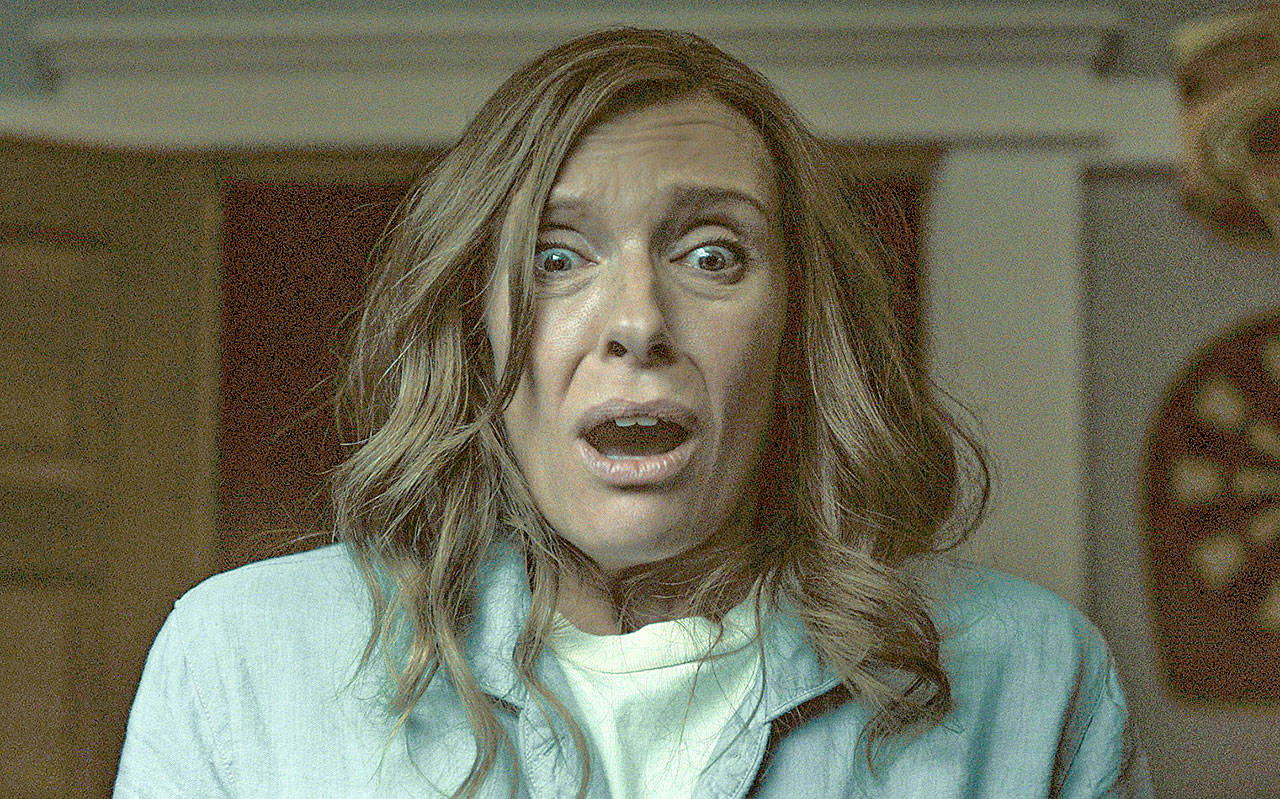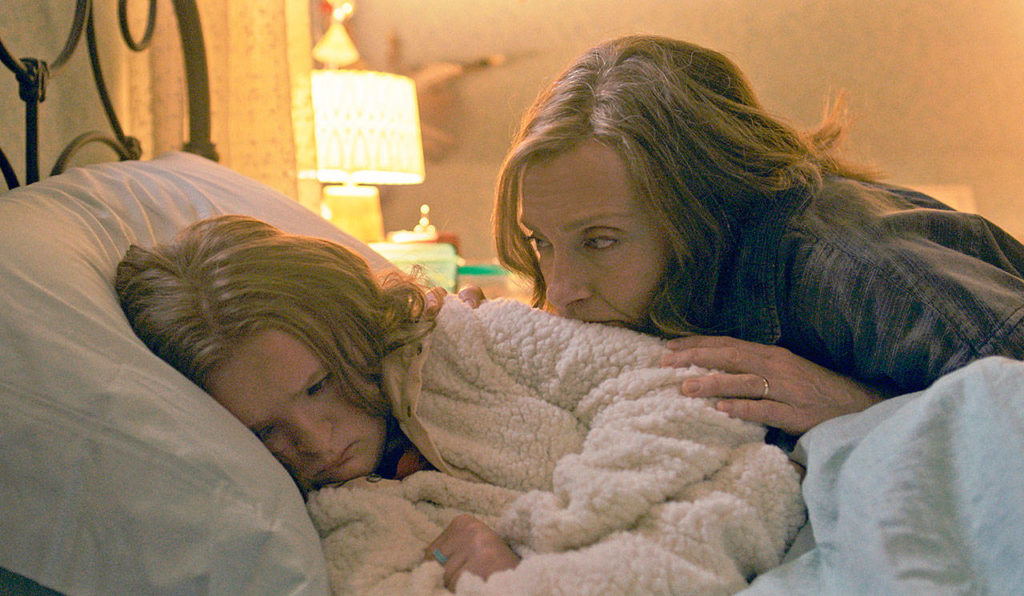By Michael Phillips
Chicago Tribune
All happy families are alike; each unhappy family is unhappy in its own way, as Tolstoy noted in a sentence so right, by the time you started arguing with it “Anna Karenina” was off and suffering.
If Tolstoy got a look at “Hereditary,” he might’ve added: “Well. There’s unhappy, and then there’s grief-stricken-hideously cruel-unholy family secrets-horror movie-unhappy.”
The latter is the dwelling place of director Ari Aster’s fiendish feature debut. Not everything in “Hereditary” fits together; at 127 minutes, it’s overlong; it’s clear Aster wanted to throw a little bit of everything, from seances to sleepwalking to malevolent specters of doom, at his devastated family unit in the center of his tale.
Yet you may be too fraught watching the thing to bother over a few missteps. Working with a superb cast, a crafty, teasing musical score by Colin Stetson and a steady accumulation of wracked nerves, gathered image by carefully planned image, this movie promises a paradoxically bright future for its director.
Aster also wrote the screenplay, which begins with an onscreen newspaper obituary noting the passing of a 78-year-old woman at her daughter’s home near the mountains. (The movie was shot in Utah.) Aster makes no mystery of his protagonist’s feelings regarding her late mother. Toni Collette plays Annie, a driven, somewhat forbidding artist specializing in miniatures. In fastidiously re-created tableau, she depicts tiny scenes from her own life. At the funeral, early on, Annie speaks of her mother’s “secretive and private” side. Later, when Annie reluctantly visits a grief-counseling group, she tells the strangers more about that secrecy, along with the streak of madness and loss that runs in her family.
Annie’s husband (Gabriel Byrne) is quiet sanity incarnate. He half-wonders if Annie should find a way to unblock her feelings toward her late, unlamented mother. She does so, without his help, in the worst possible way: We’ll keep spoilers under wraps, but it’s enough to say “Hereditary” makes Annie’s children the playthings of the story’s supernatural element.
Forced by Annie to take his troubled, withdrawn younger sister, Charlie (Milly Shapiro), to an unsupervised high school party, stoner Peter (Alex Wolff) concludes the evening in a panic. Charlie, who likes to click her tongue and make a pingpong-ball sound, has a severe nut allergy, ruthlessly foreshadowed by the filmmaker. Peter rushes her to the car and takes off, trying to get her to the hospital in time. Then something truly brutal happens, and it’s enough to slap the audience into realizing this family’s troubles have just begun.
In interviews Aster has acknowledged the various cinematic influences on “Hereditary,” among them Nicholas Roeg’s “Don’t Look Now” and Roman Polanski’s “Rosemary’s Baby.” He set out to make “an alienating film,” as he told Film Comment, “whose primary aim was to upset the audience in a very deep way.” Additionally, he said, he wanted an experience “that betrays you on every level, where you become invested in all these people, and what happens to them is not fair. You have to contend with it.”
Many will choose not to. If the mixed, largely hostile audience response three years ago to Robert Eggers’ beautiful creep-out “The Witch” is any guide, “Hereditary” may generate its share of resentment. It’s not a cathartic horror movie; its preoccupations and methods are pretty grueling. Annie finds her way to the spirit world by way of a sympathetic amateur medium (Ann Dowd) who takes an interest in her recovery after the highway tragedy. By this time Peter’s barely functioning; between him and his mother, the feelings of guilt, resentment and rage run both ways, and Peter becomes one of the “pawns in a horrible, hopeless machine” one of his fellow English class students talks about, in a discussion of Greek tragedy and pitiless gods.
Aster borrows from all over the place, with unusual confidence and purpose. His best images play spatial games between Annie’s miniatures and the goings-on in the real house. Each time Aster cuts to a shot of the spacious semifurnished treehouse behind the family home, the one emitting a ghostly red glow from a space heater, it’s just as arresting as the previous time. Above all, there’s Collette, who sometimes can over-deliver a dramatic moment or an aghast reaction, but in this storytelling context she’s fabulous. It’s a fierce performance with a human pulse, racing one minute, dead still the next. If “Hereditary” isn’t quite up to the horror-debut level of “The Witch,” it’s still a pretty remarkable experience. And now I think I need to pet my dog, or listen to some Gershwin, or something.
“Hereditary” (3 stars)
Toni Collette plays a mother dealing with the extremely disturbing repercussions of her estranged mother’s recent death in this slow-burning — and a bit overlong — horror outing, an impressive debut by writer-director Ari Aster.
Rated: R for horror violence, disturbing images, language, drug use and brief graphic nudity.
Showing: Everett Stadium, Galaxy Monroe, Marysville, Pacific Place, Seattle 10, Thornton Place, Woodinville, Cascade Mall
Talk to us
> Give us your news tips.
> Send us a letter to the editor.
> More Herald contact information.


























